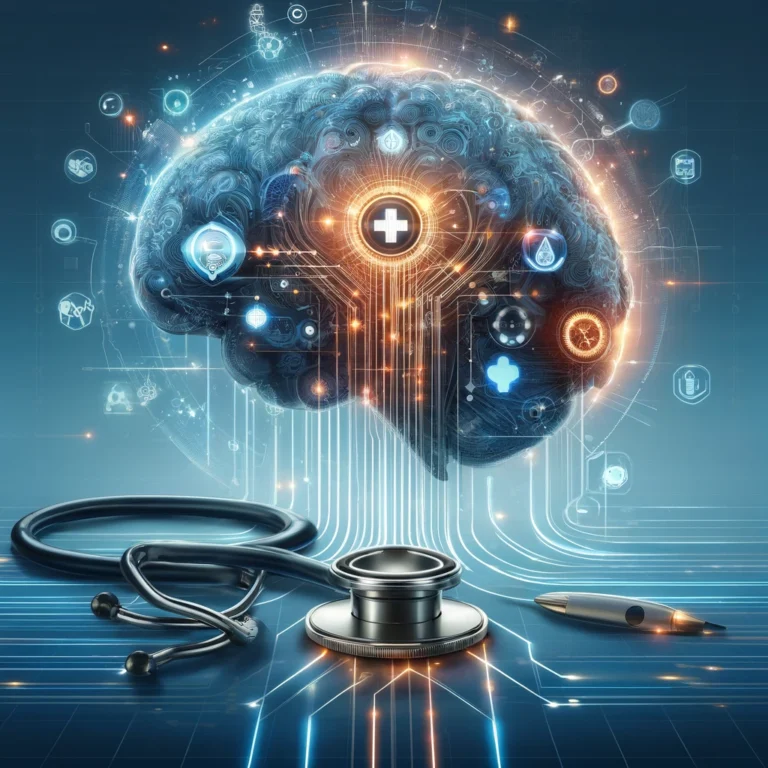
The AI Revolution in Healthcare
Artificial intelligence (AI) is ushering in a transformative era in healthcare, promising to revolutionize medical diagnosis and treatment. According to Eric Topol, a renowned cardiologist and professor of molecular medicine, AI’s superhuman abilities in areas like medical image analysis, natural language processing, and clinical decision support are poised to reshape the landscape of healthcare delivery.
Unveiling Biological Insights at Unprecedented Scales
One of the most remarkable examples of AI’s potential in healthcare is the AlphaFold model, developed by DeepMind. AlphaFold can predict the 3D structure of proteins from their amino acid sequences in a matter of minutes, a feat that would have taken years for traditional methods. This breakthrough has profound implications for understanding disease mechanisms and developing targeted therapies.

AlphaFold’s ability to predict 3D protein structures is a game-changer for biomedical research.
Superhuman Medical Image Analysis
AI’s prowess in medical image analysis is nothing short of remarkable. Computer vision models can detect diseases like diabetes, kidney disease, and even Alzheimer’s from retinal images with an accuracy that surpasses expert physicians. Furthermore, AI can determine cancer genomic drivers and prognosis from pathology slides, providing invaluable insights for personalized treatment.
“The ability for computer vision to pick up things that human eyes can’t see is quite remarkable,” Topol notes.
This superhuman ability to detect subtle patterns and anomalies in medical images has the potential to significantly improve diagnostic accuracy and reduce the staggering number of diagnostic errors that occur each year.
AI-Powered Clinical Decision Support
Beyond image analysis, AI models like GPT-4 have demonstrated impressive capabilities in clinical decision support. In a study published in the New England Journal of Medicine, GPT-4 matched or outperformed expert clinicians in diagnosing 70 difficult clinical cases. This highlights the potential of AI to augment human expertise and provide valuable insights to healthcare professionals.
Moreover, AI models are becoming increasingly multimodal, capable of integrating diverse data sources such as text, images, and speech. This holistic approach enables a more comprehensive understanding of disease mechanisms and paves the way for personalized, precision medicine.
Keyboard Liberation and Enhanced Patient-Physician Relationships
One of the most exciting prospects of AI in healthcare is the potential for “keyboard liberation.” By automating clinical documentation, prescriptions, billing, scheduling, and other administrative tasks, AI can free up healthcare professionals to focus on what truly matters: meaningful interactions with patients.
“It sets up, for example, keyboard liberation,” Topol envisions, emphasizing the transformative impact of AI on healthcare delivery models.
With AI handling the administrative burdens, physicians can devote more time to building stronger patient relationships, fostering trust, and providing personalized care.
Responsible AI Development and Validation
While the potential benefits of AI in healthcare are immense, it is crucial to prioritize responsible development and rigorous validation. Despite their impressive performance, AI models often lack transparency, and their decision-making processes can be opaque. Rigorous testing and validation are necessary to ensure that AI systems are unbiased, reliable, and that their benefits outweigh potential risks.
Additionally, multidisciplinary collaboration between healthcare professionals, AI researchers, ethicists, and policymakers is vital to translate AI capabilities into real-world clinical impact while mitigating potential risks and addressing ethical concerns.
Embracing the AI-Augmented Future of Healthcare
As AI continues to advance, it is essential for healthcare professionals and patients alike to remain open-minded and embrace the transformative potential of this technology. By leveraging AI’s superhuman capabilities in medical data interpretation, automating clinical workflows, and enhancing the patient-physician relationship, we can usher in a new era of healthcare that is more accurate, efficient, and focused on delivering personalized, compassionate care.
As Topol aptly states, “We don’t need that, we need accuracy and precision medicine.” AI is poised to deliver on that promise, revolutionizing healthcare and improving countless lives in the process.
Related Articles:
